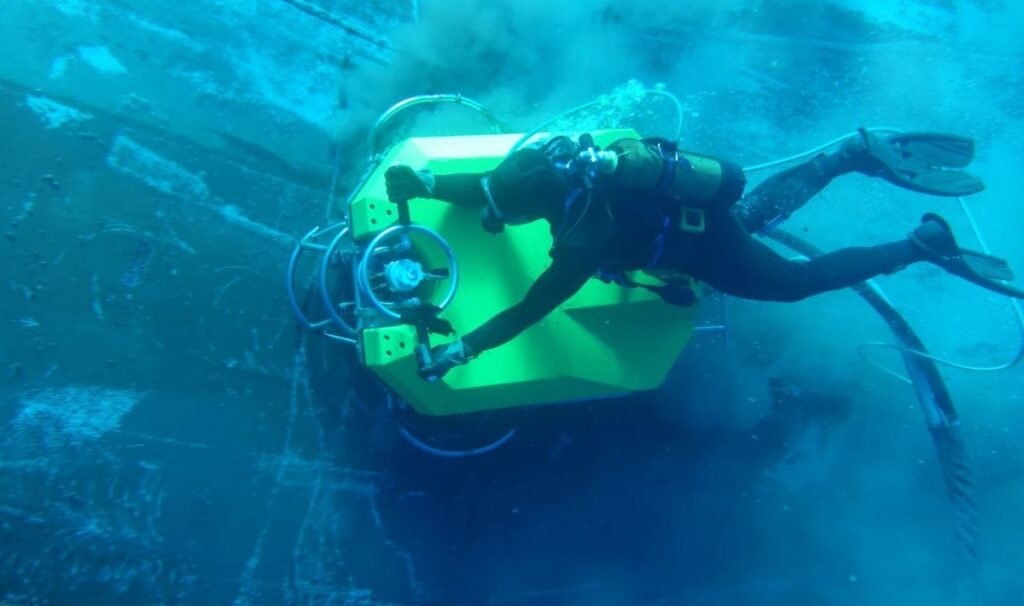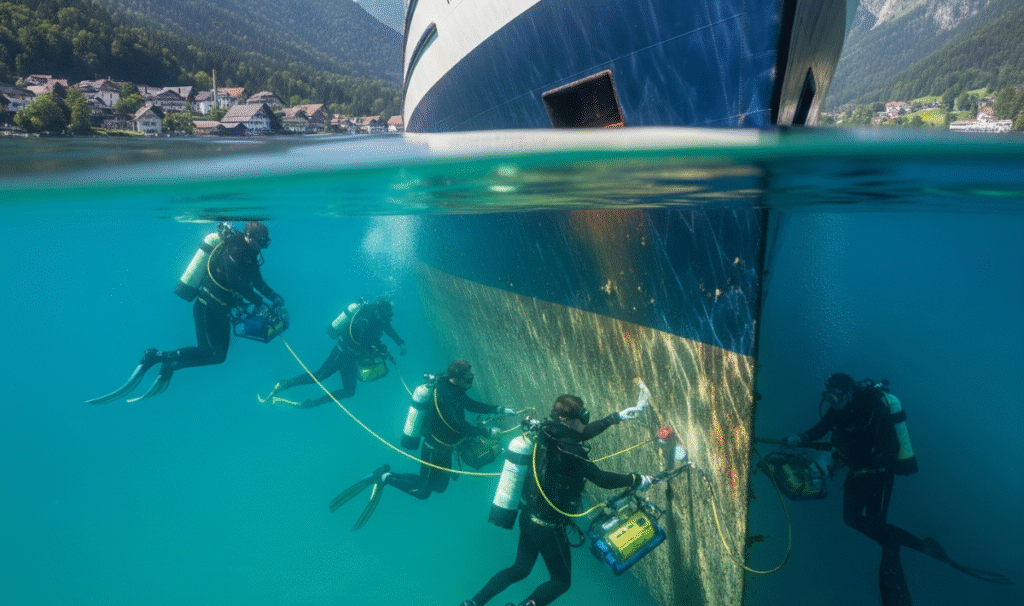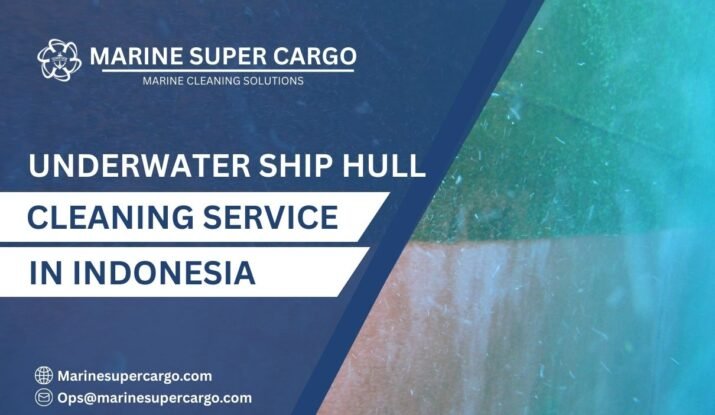Welcome to the warm, bustling waters of Indonesia—a unique crossroads for world shipping lanes, tropical marine life, and centuries-old maritime tradition. While ships glide across the archipelago’s blue surface, a hidden story unfolds just below: the constant, silent fight against biofouling. That’s where underwater ship hull cleaning in Indonesia comes into play—as vital and as dynamic as the country’s tides.
Let’s take a deep dive—literally. Imagine your ship’s hull is a fortress wall and Indonesia’s seas are teeming with “invaders.” Barnacles, algae, and marine slime are always plotting to stake their claim, forming thick layers that sap your ship’s performance, burn extra fuel, and threaten delicate coral reefs. Without regular underwater ship hull cleaning in Indonesia, you’re handing your ship to these stowaways.
Why Underwater Ship Hull Cleaning in Indonesia Matters
In the tropics, biofouling is relentless. Warm temperatures and bountiful nutrients mean marine organisms thrive on any hard surface. If left unchecked, they create a shield of drag and damage. Adding only a few millimeters of slime or barnacles to your hull can slow a vessel by several knots.
Impacts on Cost, Speed, and the Ocean
This isn’t just a technical headache. Dirty hulls force ships to burn more fuel—the equivalent of driving your car with a parachute behind it! Your voyage costs go up, emissions increase, and, even worse, invasive species may spread from one island to another. That’s why underwater ship hull cleaning in Indonesia isn’t an optional upgrade; it’s essential maintenance for shipowners who care about savings and sustainability.
Where It All Happens: Indonesia’s Critical Ports and Shipping Routes
Major Hubs from Jakarta to Surabaya
Indonesia’s maritime arteries thrum with trade and travel. Jakarta, Surabaya, Makassar, and Medan are only a few of the country’s shipping powerhouses. Each port brings its unique demands and challenges for underwater ship hull cleaning in Indonesia.

Tropical Waters, Unique Challenges
Indonesia’s seas are not only among the world’s busiest—they’re also some of the most biologically productive. Strong currents, shifting tides, and unpredictable rainfall can speed up biofouling or make traditional cleaning techniques harder to execute safely.
Methods of Underwater Ship Hull Cleaning in Indonesia
Diver-Based Cleaning: Skilled Hands and Eyes
The heart of underwater ship hull cleaning in Indonesia still beats beneath the wetsuits of professional divers. Armed with brushes, scrapers, and expert local knowledge, these specialists painstakingly clear marine growth, checking for damage as they go. Their intuition about Indonesia’s different environments is invaluable.
Robotic Tech and Smart Cleaning
Technology’s rising tide brings remote-operated vehicles (ROVs), hull scrubbing robots, and underwater drones to the Indonesian cleaning scene. These machines minimize diver risk and can be more consistent, especially in deeper or more polluted waters. They’re also equipped to document findings, creating visual logs for audits or compliance.
Eco-Friendly Practices & Waste Management
Modern underwater ship hull cleaning in Indonesia aligns with environmental laws. Closed-circuit vacuum systems capture debris instead of letting it pollute the harbor. Approved, gentle cleaning agents and responsible waste disposal mean operators keep both the captain and the coral reefs happy.
International Standards and Indonesian Compliance
IMO, MARPOL & IMCA: The Gold Standard
Indonesia is no exception when it comes to global maritime regulation. The International Maritime Organization (imo.org), MARPOL (Marine Insight – MARPOL Convention), and IMCA (imca-int.com) shape policies here, protecting the ocean and ensuring uniform safety, documentation, and diver training. Operators must meet these standards for every underwater ship hull cleaning in Indonesia.
Benefits of Underwater Ship Hull Cleaning in Indonesia
Saving Fuel and Money
Clean hull, efficient voyage. Regular underwater ship hull cleaning in Indonesia slices through drag, leading to serious savings at the fuel pump and extended range on every trip.
Preserving Marine Biodiversity
Through responsible practices, operators help prevent invasive species transfers—a priority in Indonesia, where unique marine life is a national treasure.
Meeting Green Shipping Goals
Cleaner hulls mean less carbon emitted per nautical mile—critical for shipowners targeting green certifications or meeting global emissions targets.
Challenges Faced by Indonesia’s Maritime Industry
Weather, Wildlife, and Regulations
From monsoon storms to sudden algal blooms or the stray sea turtle, you must expect the unexpected during underwater ship hull cleaning in Indonesia. Regulatory checks are frequent, so being ready with records and certifications is key.
Diver Safety & Skill Shortages
Qualified marine divers are in high demand; the risks of strong currents, limited visibility, and entanglement are real. A reputable cleaning team follows IMCA protocols and uses the latest safety gear, putting crew wellbeing at the forefront of every underwater ship hull cleaning in Indonesia.

Choosing the Right Service Provider
Certifications, Technology, and Local Knowledge
Don’t settle for the cheapest diver with a brush. The most reliable providers for underwater ship hull cleaning in Indonesia bring together IMCA/IMO certification, advanced robotic tools, and strong local expertise. Always ask for client references, verify compliance credentials, and insist on detailed before-and-after inspection reports to safeguard your vessel’s performance. Reputable companies like CleanShip.co deliver trusted, environmentally responsible solutions that protect both your hull and your long-term investment, ensuring efficiency and compliance with international and local maritime standards.
The Future of Underwater Ship Hull Cleaning in Indonesia
Tech Innovations & Environmental Priorities
Imagine hulls that “self-clean” with biomimicry coatings or AI predicting the perfect cleaning schedules from satellite data. Indonesia’s next wave combines local expertise with high-tech solutions, leading to safer, cleaner, and greener shipping.
Conclusion
Don’t wait until barnacles become a budget-breaker! Regular, strategically planned underwater ship hull cleaning in Indonesia keeps your ships swift, safe, and sustainable. It’s about protecting your bottom line—and the breathtaking waters Indonesia is famous for. By following best practices, demanding accountability, and embracing innovative tech, you turn necessary maintenance into lasting value.
FAQ:
Q1. How often should ships undergo underwater hull cleaning in Indonesia?
The frequency varies by route and biofouling rates, but many operators schedule cleaning once or twice a year, or as soon as performance drops.
Q2. Is underwater ship hull cleaning in Indonesia environmentally safe?
Yes, if performed using closed-circuit waste collection, certified methods, and eco-friendly tools in line with MARPOL and IMO guidelines.
Q3. What are the main risks for divers?
Currents, poor visibility, and marine life; reputable teams use IMCA-standard safety protocols to protect divers during underwater ship hull cleaning in Indonesia.
Q4. Are robotic cleaning solutions widely available?
Yes—major Indonesian ports host providers with robots and ROVs for tougher jobs or where diver safety is a concern.
Q5. What documents or certifications should a cleaning provider present?
Look for IMCA and/or IMO accreditation, detailed cleaning logs, waste-handling reports, and evidence of local regulatory compliance for all underwater ship hull cleaning in Indonesia.


